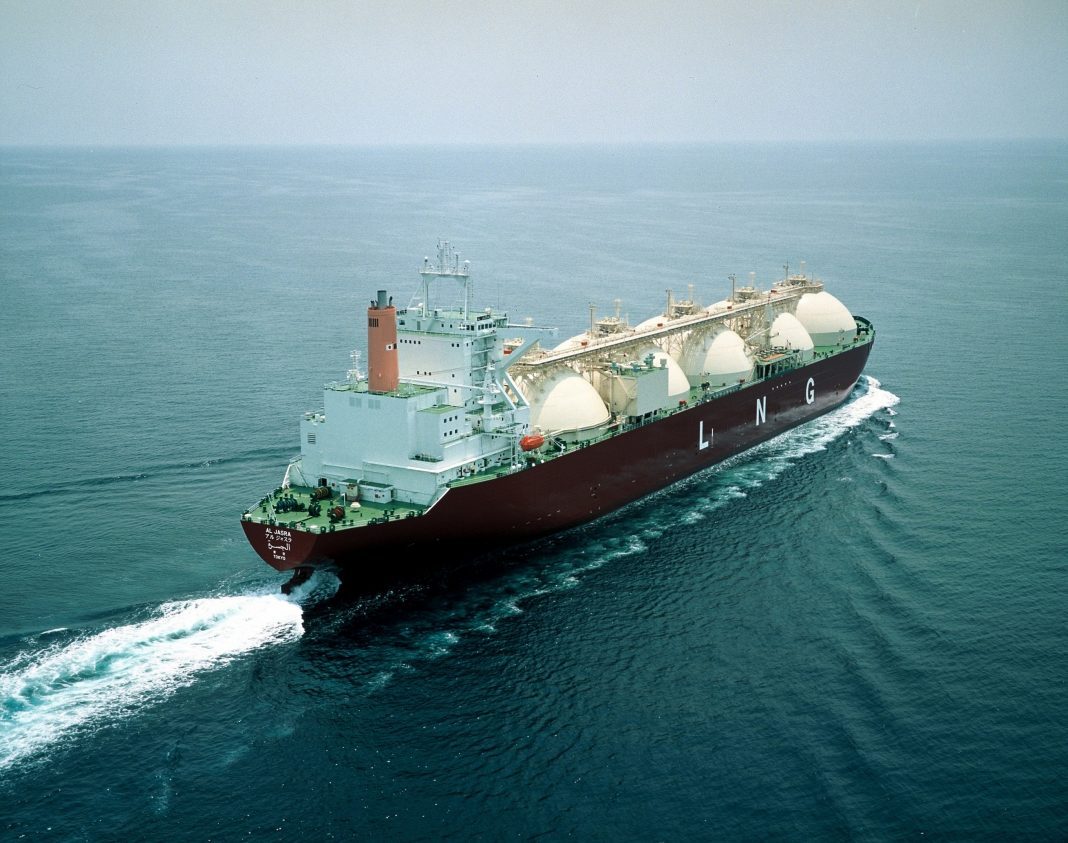QatarEnergy has yet to respond to Doha News’ request for a comment on the matter.
QatarEnergy reportedly paused five of its liquefied natural gas shipments via the Red Sea, while continuing its production, following strikes on Yemen by the United States and United Kingdom, multiple news agencies reported on Sunday.
Ship-tracking data compiled by Bloomberg found that five tankers have been paused—including three off the coast of Oman, one in the Red Sea, and another near the Suez Canal.
The news agency noted that three other major oil tanker operators said they would not pass through the area.
A source familiar with the matter separately told Reuters that four of QatarEnergy’s tankers were paused after leaving Qatar for the Suez Canal, but had to stop at the coast of Oman.
“It is a pause to get security advice, if passing (through the) Red Sea remains unsafe we will go via the Cape,” a source told Reuters, noting that “it is not a halt of production.”
QatarEnergy has yet to respond to Doha News’ request for a comment on the matter.
The Gulf state is the world’s second-largest LNG exporter after the U.S. and shipped more than 75 million metric tonnes of the gas last year, according to data cited by Reuters. Most of Qatar’s destinations went to its Asian customers, with whom it shares long-term contracts.
Qatar delivered another 14 million tonnes to Europe.
Doha is set to ramp up its LNG production under the multibillion North Field expansion project, potentially boosting the production by more than 63% while adding 48 mtpa globally.
Attack on Yemen
The U.S. and UK launched a barrage of airstrikes on Yemen on January 12 in response to the Houthi’s Red Sea blockade of ships linked to Israel.
The attack involved more than 100 precision-guided munitions, striking several Yemeni governorates, including the capital Sanaa and the cities of Hodeidah, Saada, and Dhamar.
Mohammed Abdul Salam, a spokesperson for the movement, strongly condemned the military aggression against Yemen at the time.
“We affirm that there is absolutely no justification for this aggression against Yemen, as there was no threat to international navigation in the Red and Arabian seas, and the targeting was and will continue to affect Israeli ships or those heading to the ports of occupied Palestine,” Abdul Salam said.
The U.S. Central Command said it shot down “an anti-ship cruise missile” on Sunday that was fired from “the Houthi militant areas of Yemen” towards the guided missile destroyer USS Laboon in the southern Red Sea.
The Red Sea’s escalations have been on the rise since Houthi rebels captured the Galaxy Leader ship on November 19, which is partially owned by an Israeli businessman.
The move marked a major escalation in the area and has forced vessels coming from the Israeli Red Sea port of Eilat to Asia, Australia or East Africa to divert its routes. The Israeli ships have to take a longer path and maneuver the Bab El-Mandeb Strait, consequently paying a heavy additional fee.
The move prompted the U.S. to launch Operation Prosperity Guardian on December 18, 2023, a coalition aimed at addressing “security challenges in the southern Red Sea and the Gulf of Aden.”
The operation includes the United Kingdom, Bahrain, Canada, France, Italy, the Netherlands, Norway, Seychelles and Spain.
The capture of the vessels also came after Houthi’s began launching ballistic missiles towards Israel on October 31 in response to the war on Gaza.







